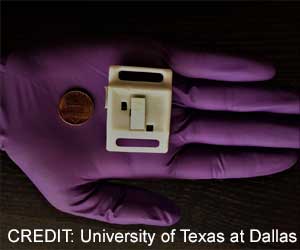Alcohol alters the burst-pause firing patterns of cholinergic interneurons (CINs), key players in cognitive flexibility.

About 400 million people worldwide suffer from alcohol use disorder (AUD), which is a major contributor to death from heart disease, stroke, liver disease, and cancer.
Beyond these physical effects, AUD significantly impairs brain processes that are essential for memory, learning, and adaptability—all of which are important components of cognitive flexibility(1✔ ✔Trusted Source
Dynamic responses of striatal cholinergic interneurons control behavioral flexibility
).
By concentrating on how chronic alcohol use reduces cognitive flexibility, researchers at Texas A&M University College of Medicine have now provided fresh insight into how this alteration affects brain signaling circuits. Cholinergic interneurons (CINs) play a crucial part in this process.
Effect of Alcohol on Brain Adaptation
Alcohol impairs the brain’s capacity for adaptation by changing the burst-pause firing patterns of CINs, which are specialized neurons that produce the neurotransmitter acetylcholine.
This has been shown by Zhenbo Huang, PhD, an associate research scientist in the lab of Jun Wang, MD, PhD, and colleagues. CINs are important gatekeepers in the striatum of the brain that affect motivation and reward-driven learning through dopamine signaling modulation.
“Dopamine neurons drive the brain’s reward system, while CINs act as the gatekeepers, filtering stimuli that activate these neurons,” said Wang, an associate professor at the Texas A&M College of Medicine.
Using advanced tools such as optogenetics, which uses light to control cells, the researchers uncovered that stimulating CINs in animal models of chronic alcohol exposure produced an altered firing pattern compared to models without chronic alcohol exposure.
Advertisement
How Alcohol Disrupts Learning and Adaptability
Normally, CINs fire in a “burst-pause” pattern: a quick burst of activity followed by a pause, which is essential for learning new behaviors and adapting to change. However, in alcohol-exposed models, this firing pattern was significantly disrupted, with shorter and weaker pauses, impairing critical learning processes such as reversal learning.
“Reversal learning is a cornerstone of cognitive flexibility,” Wang explained. “It allows individuals to unlearn behaviors when rules or circumstances change—a process heavily reliant on acetylcholine signaling.”
Advertisement
By combining optogenetics—which uses light to control CIN activity—and fiber photometry—which involves genetically engineered biosensors to detect the real-time release of acetylcholine while subjects perform tasks—the team discovered distinct roles for different CIN firing phases.
The “burst” phase, which increases acetylcholine release from CINs, aids extinction learning—where old behaviors are unlearned. The “pause” phase, on the other hand, which causes a dip in acetylcholine release from the CINs, is crucial for reversal learning, where new behaviors replace outdated ones.
This groundbreaking research reveals how alcohol undermines these mechanisms, offering new insights into the broader effects of AUD. Importantly, the findings suggest potential therapeutic targets for addressing cognitive impairments associated with AUD.
“The burst and pause dynamics of CINs are critical for behavioral adaptability,” Wang said. “This study highlights their unique roles and lays the groundwork for exploring how similar mechanisms might influence conditions beyond addiction, including aging and neurodegenerative diseases.”
Reference:
- Dynamic responses of striatal cholinergic interneurons control behavioral flexibility- (https:www.science.org/doi/10.1126/sciadv.adn2446)
Source-Eurekalert



